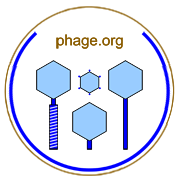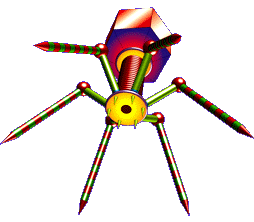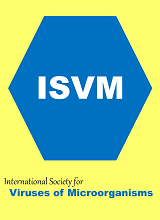

Chapter authored by Ryland Young and Ing-Nang Wang published in 2006.
Young, R. and I.-N. Wang. 2006. Phage lysis, p. 104-125. In: R. Calendar and S. T. Abedon (eds.), The Bacteriophages. Oxford University Press, Oxford. [Google Books]
]This is the first paragraph: In general, bacteriophages must lyse their host cells to liberate the progeny virions. The most common misconception about host lysis is that it is simply the inevitable outcome of phage infectiondenouement that follows after the elegant processes defining successive waves of gene expression and the intricate and coordinated leading to virion morphogenesis. For example, in the otherwise captivating description of the molecular processes of phage life cycles in The Molecular Biology of the Gene (112), it is explained that some phage proteins are needed early, "while others, such as the viral coat proteins or the lysozyme for bacterial cell lysis, must only appear later", leading to the end of the infective cycle of phage T7. "Finally, T7 lysozyme destroys the bacterial cell wall and allows newly formed phage particles to escape and renew their growth cycle in other bacteria." The impression given is that lysis is caused by the late appearance of lysozyme activity, despite the fact that T7 lysozyme is an early gene. Also, the implication is that release and re-infection is needed to "renew" a completed vegetative program, that lysis occurs after virion production had been achieved. However, it has been known for decades that if the lysis genes are ablated, the accumulation of intracellular virions can continue unabated for extended periods, far beyond the time of lysis of parental phage (67); in fact, a recent re-analysis of the kinetics of virion accumulation for lysis-defective mutant phages indicated that it is essentially linear for periods at least four-fold longer than the wild-type vegetative cycle (110). Thus lysis is a programmed event, like all the other steps in the infectious cycle. It is the thesis here that the decision of when to terminate the infection and lyse the host is the only major decision made in the vegetative cycle; i.e., that all other macromolecular processes proceed at rates which maximize the intracellular accumulation of infective virions.
Contact web master. Return to terms.











